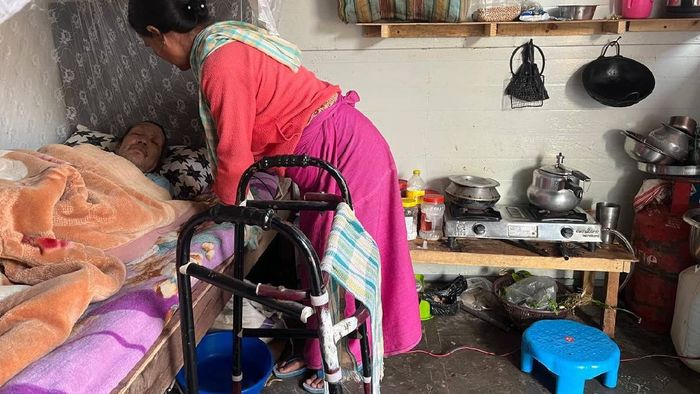Manipur's internally displaced persons struggle for healthcare amid deepening poverty
Despite being beneficiaries of government-sponsored health schemes, many IDPs find themselves unable to access treatment for illnesses not covered under these programs. Their deteriorating health conditions now pose a serious threat to their longevity and quality of life.

- Apr 08, 2025,
- Updated Apr 08, 2025, 6:03 PM IST
Nearly two years into the ethnic conflict in Manipur, the crisis continues to displace thousands, leaving internally displaced persons (IDPs) in a state of severe hardship. With no lasting peace or political resolution in sight, a significant number of IDPs—particularly those suffering from chronic illnesses—are being forced to forgo essential medical treatment due to extreme poverty.
Despite being beneficiaries of government-sponsored health schemes, many IDPs find themselves unable to access treatment for illnesses not covered under these programs. Their deteriorating health conditions now pose a serious threat to their longevity and quality of life.
At the Mandop Yumfam Relief Camp in Khurkhul, coordinator RK Sanahal revealed that 1,082 inmates are currently housed in pre-fabricated shelters, including 544 males, 533 females, and 188 children under 12. The number of school-going students stands at 302. Most families in the camp rely on irregular, low-paying jobs, surviving on a daily hand-to-mouth basis.
Sanahal expressed concern that despite receiving some government aid—namely food rations and ₹80 per head per day—the amount falls drastically short of meeting basic living and healthcare expenses.
“Our inmates, mostly from Leimakhong and parts of Kangpokpi, Churachandpur, and Bishnupur districts, are hardworking and willing to take on any available job,” Sanahal said. “But the prolonged nature of this conflict has dragged their standard of living to the brink.”
He also highlighted the pressing issue of those suffering from long-term illnesses. “Many in our camp are battling chronic diseases. When even a healthy person struggles to survive, the plight of a sick individual is unimaginable. Health schemes fail to cover many essential treatments. Consequently, patients are left untreated,” he said, appealing for special provisions from the government to support the healthcare needs of IDPs.
One such affected individual, Jamuna Takhellambam, in her 50s, spoke about her husband’s deteriorating health. “He suffered a paralytic stroke and is now fully bedridden. Doctors recommended surgery, but we can’t afford it. My five children are all married and try to contribute, but even their combined efforts fall short,” she said. “The health card we have doesn’t cover this type of surgery.”
Similarly, Lourembam Memcha, a 70-year-old diabetic patient, expressed the challenge of balancing health expenses with basic survival. “Occasionally, health camps are organized here, and we’re grateful for that. But for those of us with chronic conditions, more consistent and targeted support is essential. I often compromise on medication just to make ends meet,” she said.
Similar stories echo across other relief camps in the state, where IDPs are trapped in worsening living conditions. Yet many remain hopeful that government intervention could change their trajectory, particularly with targeted healthcare support for those battling prolonged illness.